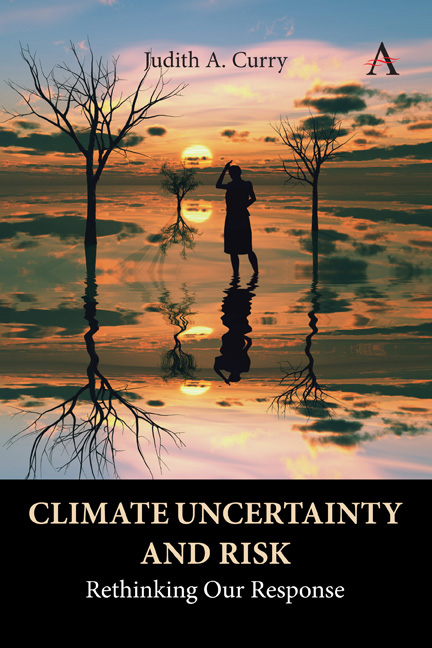Author's Foreword
Published online by Cambridge University Press: 28 February 2024
Summary
“The major problems in the world are the result of the difference between how nature works and the way people think.”
—Anthropologist Gregory BatesonWorld leaders have made a forceful statement that climate change is the greatest challenge facing humanity in the twenty-first century. While the majority of people are worried by climate change, most are unwilling to follow the call from the United Nations for “rapid, far-reaching and unprecedented changes in all aspects of society.” Further, many of the technologies needed to effectively transition the world's economy away from fossil fuels are not ready for large-scale deployment. As a result, there is acrimonious worldwide political debate on implementing climate policies, which even if successful, have little chance of improving the climate or human well-being in the twenty-first century.
How did we come to be between a rock and hard place on the issue of climate change? This book shows how the narrow and politicized framing of the climate debate has resulted in an oversimplification of both the scientific problem and its solutions. My personal journey in navigating the climate debate provides insights into the problem and ways forward for finding solutions.
Prior to about 2003, it was fashionable in academic circles to be skeptical about the highly confident conclusions being issued in the Intergovernmental Panel on Climate Change (IPCC) assessment reports on human-caused climate change. I became concerned about the way these assessment reports were treating uncertainty and confidence levels in their conclusions. Apart from reading the IPCC Reports, I was mostly oblivious to the public debate and controversies surrounding climate change.
I inadvertently entered the public debate on climate change on September 14, 2005. The American Association for the Advancement of Science organized a press conference for a paper I co-authored that described a substantial increase in the global proportion of category 4 and 5 hurricanes. The unplanned and uncanny timing of publication of this paper was three weeks after Hurricane Katrina had devastated New Orleans. Our “15 minutes” stretched into days, weeks, and months, as Hurricane Katrina became a major focusing event for the global warming debate. I was treated like a rock star by the environmental movement.
- Type
- Chapter
- Information
- Climate Uncertainty and RiskRethinking Our Response, pp. xvii - xxPublisher: Anthem PressPrint publication year: 2023



